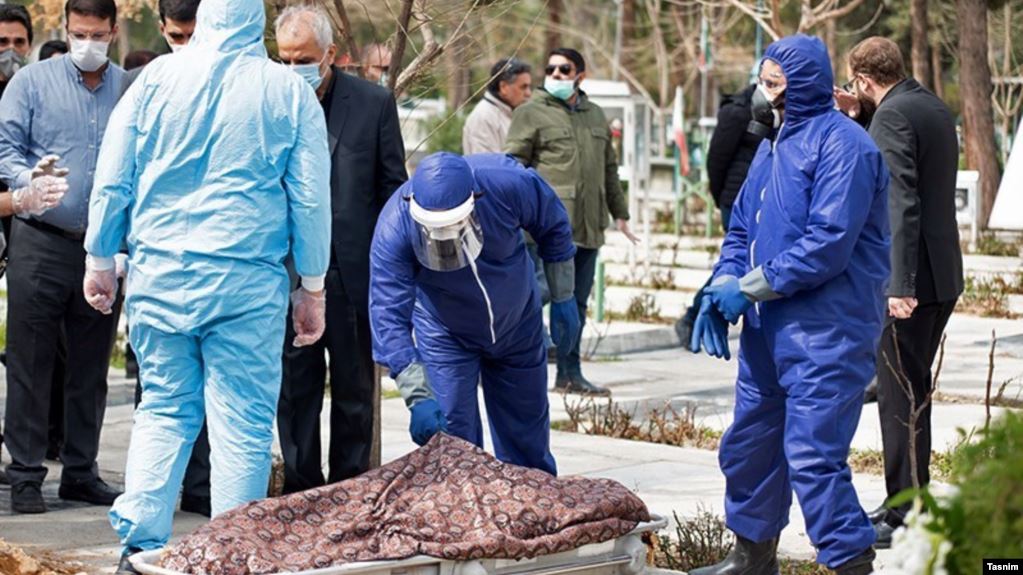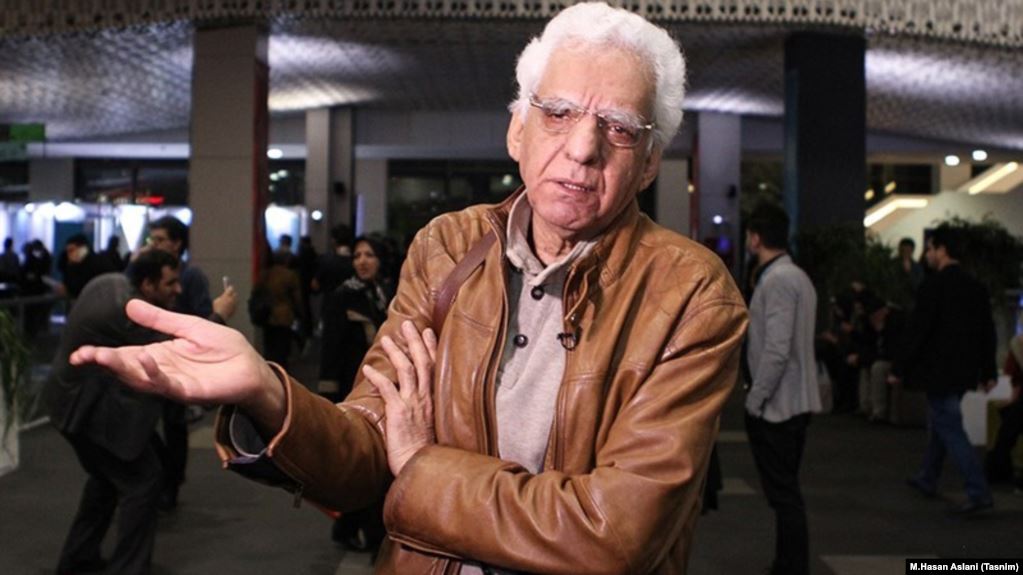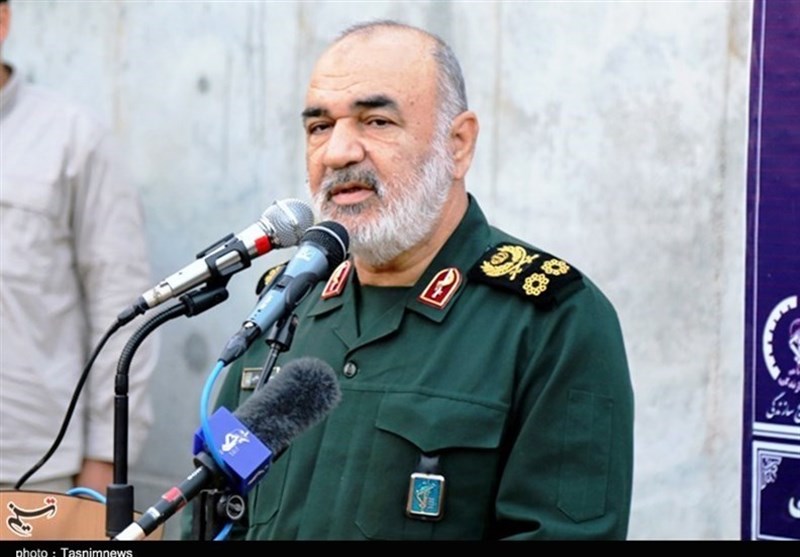
Mr. President Talk to the People About the Sanctions!
The editorial of Setareh Sobh demands that Iranian President Hassan Rouhani must explain why the Iranian people should suffer more than others during the coronavirus crisis due to US sanctions.
Releasing Iran’s blocked money – $1.6 billion – in Luxemburg doesn’t imply any changes in Iran’s foreign policy towards the West and the United States. It is possible that due to the coronavirus outbreak across the world and Iran, European countries and the United States have agreed on humanitarian measures, such as releasing Iran’s frozen money – which is a positive step and a green light to Iran. This measure has probably been taken to facilitate the purchase of medical supplies, medicines, and edibles. In the meantime, we saw that America permitted South Korea to export medical supplies, medicines, and edibles to Iran, which is the second step in fighting the coronavirus in Iran.
These two measures are both related to the coronavirus crisis, rather than changes in Iran’s policy or its diplomatic efforts. The Iranian president has said that Iran is dealing with two viruses: the coronavirus and sanctions, emphasizing that the sanctions are more dangerous than the coronavirus.
Hassan Rouhani must tell the millions of people who voted to elect him why the virus of sanctions is more dangerous than the coronavirus and explain why the Islamic Republic is under pressure more than any other country and why Iranians have to pay the price for it. These questions must be answered so that there is a chance to ease US sanctions.
Harsh steps like attacking the US embassy, British embassy, and Saudi embassy, or radical slogans against some countries have prepared the ground for sanctions. As a result of such issues, the country is under the pressure of sanctions, so much so that the president calls them more dangerous than the coronavirus disease.
The Government Should Fight the Coronavirus by Going to Tax-Exempted Institutions
The editorial of Setareh Sobh explains why the Iranian government must go to those institutions and organizations under the Supreme Leader Ali Khamenei that haven’t paid taxes for decades so that it can fight the coronavirus disease effectively.
It is surprising why arbitrary decisions have been taken to fight the virus and the views of experts have not been considered. Many countries have taken measures to prevent the spread of the coronavirus, with social distancing and stay-at-home methods as the most important ones.
Quarantine is costly and the government has to pay its costs. But since the Iranian government cannot do so, it has opted for trial and error, which will result in a surge in infection cases. We do know that the Iranian government cannot afford to pay the cost of quarantining individuals. But we must accept that the country is facing an emergency and running the country under such critical conditions is very tough and complicated.
The question is: why was the Iranian Parliament closed for 45 days due to the coronavirus? The Parliament could pass legislation in this regard. There are several institutions and organizations in Iran that have not been paying taxes for years and decades. How come the Parliament has not gone to them to get resources to fight the coronavirus disease? How come institutions and organizations that have not paid taxes for 40 years haven’t taken any measures to help the people under these critical conditions?
The Iranian government must stop its trial and error approach and fight the coronavirus disease seriously. With a serious plan and approaching those institutions and organizations that have not paid taxes for decades, it can fight the coronavirus disease. Now is the time for action, not words!
Iran and Roots of Political Instability in Iraq
The editorial of Arman Melli focuses on the designation of Mustafa Al Kazmi as Iraq’s new prime minister and its implications for the relationship between Iran and Iraq.
Recent incidents in Iraq have directly impacted Iran-Iraq relations, and it seems that Iran has not taken a direct position towards the designation of the new prime minister in Iraq. Some have welcomed Al Kazmi, while others have put forward negative propaganda against him.
But in Iraq, there has been a consensus towards designating him, which implies that Iraq intends to rid itself of disputes between Iran and America. With this consensus, it seems that the Iraqi people are distancing themselves from the recent instability and want to stop the growth of extremist groups in their country.
Given the numerous failures of Iraqi governments in the past to foster security in the country and establish a powerful government, we must wait and see if Al Kazmi can create a balanced relationship with Iran, America and the Gulf countries, or whether like his predecessors, he is going to fail. Creating balance and unity in Iraq is by itself exceedingly difficult, due to the existence of numerous parties and tribes in the country.
What is important now is how Al Kazmi will form his cabinet. Families and tribes have always had a significant role in the formation of the Iraqi government and there has always been rivalry among these groups in this regard. Shiites, Sunnis and Kurds have always competed – each seeking more power in the government.
Political issues in Iraq have always been dominated by ethnic, tribal, and religious perspectives, therefore, it seems unlikely that Iraq can attain political stability, settle problems with its neighboring countries, and have an uncontroversial relationship with Iran.
Statistics Lie!
The editorial of Jahan Sanat explains why the government’s inflation and price variation statistics do not reflect the reality of the market.
The price indexes of the Central Bank and Iran’s Statistics Center are based on averages of 300 to 400 items and have no scientific basis. So they cannot indicate the inflation rate and changes in price indexes. Despite the high inflation rates announced by the government, these rates do not reflect the existing realities.
To determine the inflation rate, the government calculates the average price change in certain goods. Basically, for a society that lacks stability and where price changes are rapid, such calculations cannot show the real changes.
The other issue is that while some goods might increase in price, other goods might decrease in price due to declining demand. If so, we should see which goods are more economically important, so we can use them to calculate price indexes.
Despite these issues, the government’s inflation data indicates that the people have become poorer than the declared rate. In other words, the inflation rate indicates that certain goods have seen a price increase and purchasing power has correspondingly decreased.
The truth is that there is an increase in demand in Iran because supplies have decreased due to a decline in production. In oil-rich countries like Iran, a high inflation rate is part of the nature of the economy. The government meets the demands of society by selling oil. As such, instead of increasing production in the country, the government injects oil revenues into the economy which results in liquidity and the inflation rate increasing.
Under the current conditions when Iran’s oil exports have dropped significantly and the country does not have non-oil exports, the government can only print money and get loans from the Central Bank which will result in liquidity and inflation increasing.
The important point is that there is stagflation in Iran’s economy. Despite a severe economic recession, the government has announced an inflation rate of 40 percent. The truth is that there is no investment in production, the unemployment rate is high, exports have gone down, and there is no incentive to produce.
As there is no production in Iran’s economy and the government is under the pressure of sanctions, the coronavirus crisis will force the government to print money, as a result of which prices will go up in the coming months.

Tehran’s Local Officials Criticize the Decision to Reopen the City

After implementing the “smart social distancing” plan which means reopening government organizations and some businesses gradually by the Iranian government, cities in Iran have become crowded – increasing the chances of a second wave of the virus, particularly in Tehran.
The head of Tehran’s City Council says the return of two thirds of government employees and workers to their jobs has raised fears of the coronavirus disease returning. Alireza Zali said that Tehran’s situation is different from other provinces and the way people return to their work must be reconsidered.
Following the decision of the National Anti-Virus Headquarters to resume economic activities, Tehran’s highways and streets have become very crowded making it difficult to observe social distancing.
Earlier, Mohsen Hashemi Rafsanjani of Tehran’s City Council had pointed to the decision of the National Anti-Virus Headquarters, expressing worries about a second wave of the coronavirus pandemic.
The headquarters’ decision about governmental organizations reopening has been implemented since Saturday, and many other jobs will resume activities from this Saturday.
Meanwhile, the Medical Council of Iran and the head of the Crisis Management Organization in Tehran have warned about a probable increase in infection cases. The Medical Council of Iran said implementing “smart social distancing” under Iran’s current conditions might result in the virus spreading further.
Smart social distancing to fight the coronavirus outbreak started on Saturday in Tehran, with businesses divided into two categories: low-risk and high-risk. Owners of low-risk businesses can obtain permits to reopen their businesses.
In the meantime, official statistics show that infection cases are still high.
The Head of the Crisis Management Organization in Tehran, Reza Karimi Mohammadi has also warned about a possible second surge in COVID-19, calling for health standards to be observed in public spaces including public transportation, shopping centers, and offices.
10,000 New Graves Prepared for Coronavirus Victims in Tehran

An official at Tehran’s Municipality announced that a new section with 10,000 new graves has been prepared for the victims of the virus in this city.
Mojtaba Yazdani noted that several morgues as well as two 12-meter containers with refrigerators have been added to the facilities of Beheshti Zahra Cemetery. Yazdani, however, did not mention the number of victims buried at this cemetery.
According to Iran’s Health Ministry, 4,474 people have lost their lives due to this virus in Iran. Yet, Radio Farda reports – based on remarks made by local authorities as well as Health Ministry sources – signify that nearly 10,000 people have died because of the virus in 31 Iranian provinces.
Calls for Prisoners of Conscience to be Freed in Iran

As medical doctors warn about a second wave of the virus in Iran, there is concern over the health and lives of prisoners of conscience in Iranian prisons.
In this regard, eight Iranian filmmakers issued a statement, calling for all political prisoners including environmental activists to be freed. The filmmakers warned that the health of prisoners of conscience, political prisoners, and environmental activists is at risk. Also, they said that keeping these people in jail might have irreparable consequences.
Pointing to a second wave of the virus as predicted by medical doctors, these filmmakers have called for prisoners of conscience, political prisoners, and environmental activists to be immediately freed.
In the meantime, the Baha’i international community has expressed concerns about the health of those Baha’is who are in Iranian jails, demanding that the Iranian government should immediately release them.
Many prisoners incarcerated in different Iranian prisons – including political prisoners and prisoners of conscience who are sentenced to more than five years of imprisonment – are still jailed. And despite the coronavirus disease spreading in Iranian prisons and some prisoners contracting the virus, they are not granted a furlough or a conditional release.
The Iranian government has been repeatedly asked to temporarily release these prisoners, and keeping political prisoners and prisoners of conscience in jail during the coronavirus outbreak has been unfortunate and worrying.
Workers to Rouhani: Thanks to You, We Have Become Poorer!

Some metal workers, in a letter to Hassan Rouhani, pointed to a six-fold increase in the price of masks and a 1.5-fold increase in the price of alcohol. They said, “We cannot buy these items because thanks to your efforts, we have become poorer and lost our purchasing power!”
The letter points to a lack of unemployment benefits for drivers, construction workers, peddlers, and many who have lost their jobs during the coronavirus crisis. They told the Iranian president, “you cannot tell the people to stay home, but not consider the poor.”
The writers of the letter mentioned rising prices during the coronavirus outbreak, “Before the outbreak of coronavirus, latex gloves were sold for 35,000 tomans per pack in pharmacies, but the same pack is now 100,000 tomans.”
The workers asked the president to support workers and the poor by paying unemployment benefits for three months, paying unpaid wages, making water, gas, and electricity free of charge until the end of the coronavirus crisis, and the free distribution of masks, gloves, and disinfectants among the poor and unemployed workers.
In the meantime, Alireza Mahjoub, head of Parliament’s labor faction, said that after the coronavirus outbreak, many workers have lost their jobs, and their financial situations are uncertain.
The spokesperson of the government Ali Rabiei had said earlier that the coronavirus crisis has impacted 7.3 million people in official and unofficial jobs. According to Rabiei, 3.3 million people with official jobs have been directly impacted by the crisis, while 4 million people with unofficial jobs are in danger of losing their jobs or having their wages lowered.
3 Suicides Due to Coronavirus Disease and Financial Pressures

Despite official warnings about the economic and psychological fallout of the coronavirus in Iran and along with increasing domestic violence, three cases of suicides due to the virus and poverty have been reported.
According to Shahrvand newspaper, a mother and her son committed suicide in Tehran following the death of the father of the family due to the coronavirus. Shahrvand said the son committed suicide because the usual funeral ceremony for his father was not held, which made him depressed. After the death of the son, the mother who couldn’t bear his death killed herself as well.
Even though Kianoosh Jahanpour, spokesman of the National Anti-Virus Headquarters, had earlier warned about the mental health consequences of COVID-19 related deaths, nothing has been done to help families.
The fallout of the coronavirus crisis is not confined to the social and psychological spheres; it has also put a lot of economic pressure on low-income families.
On Saturday, a 12-year-old girl from Ilam province committed suicide due to poverty.
The Iranian President Hassan Rouhani had confirmed that 3 million Iranian households are under financial pressure due to the coronavirus crisis.
At least two lawmakers consider the government’s financial help and stimulus package to low-income households as being insufficient, and the head of public relations in the Health Ministry warned about emotional depression because of the coronavirus crisis. It means that the social and psychological impacts of this crisis are going to be one of the challenges facing the Iranian government in the upcoming months.
The IRGC Sets up New Headquarters to Fight Coronavirus

The IRGC Commander-in-Chief Hossein Salami announced establishing the “Imam Hassan Headquarters” to support those who have been affected by the coronavirus.
Salami stated that the first meeting at the new headquarters was held, adding that the first stage of its activities is to distribute incentive packages among 3.5 million families.
The IRGC commander pointed out that the new headquarters would be cooperating with subsidiary headquarters in provinces established by the Foundation of the Oppressed, Astan Quds Razavi Foundation, the Execution of Imam Khomeini’s Order (EIKO), Imam Khomeini Relief Foundation as well as the Basij — which are all under the aegis of the Islamic Republic’s Supreme Leader Ali Khamenei.
Salami noted that although the coronavirus has impacted almost all countries, “the Iranian nation is also dealing with other viruses, such as sanctions, psychological operations and even the threat of a military invasion at the same time.”
The IRGC’s Imam Hassan Headquarters will oversee policy making, planning, organizing, and implementing plans to help the poor in society. This newly established headquarters would also enjoy support from Iran’s Ministry of Industry, Mine and Trade.
The Basij has been designated as the “most suitable” institution for “identifying individuals in need” and distributing incentive packages which would be stamped by the name of the relevant institution among them.
